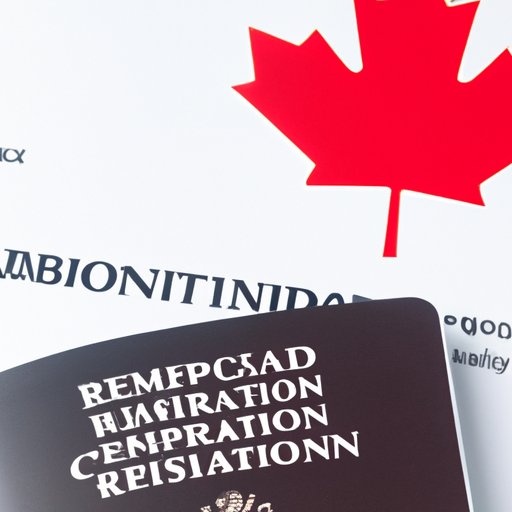
I. Introduction
Traveling with a DUI conviction can present unique challenges, particularly when visiting countries with strict border control laws. For those with a DUI on their record and an upcoming visit to Canada, it is important to understand the eligibility requirements and potential consequences of entry. In this article, we will discuss the key factors that determine your eligibility to enter Canada with a DUI, offer tips for navigating Canada’s DUI border entry laws, and explore the pros and cons of seeking criminal rehabilitation prior to travel. We will also examine how Canada’s cannabis legalization has affected travel rules for individuals with a DUI.
II. 5 Key Factors That Determine Your Eligibility to Enter Canada with a DUI
When considering entry into Canada with a DUI, there are several factors that Canadian border agents consider, including the severity of the offense, the number of offenses, and the length of time since the conviction. Additional factors include whether any injuries or fatalities occurred as a result of the DUI and whether the individual has made any efforts towards rehabilitation since the conviction. Furthermore, penalties for DUI offenses can vary depending on the province or territory. Therefore, it is crucial to understand the specific regulations and requirements for the area you plan to visit in Canada.
III. Navigating Canada’s DUI Border Entry Laws
Entering Canada with a DUI requires careful preparation and documentation. To navigate Canada’s DUI border entry laws, visitors should obtain a copy of their criminal record from their home country, which will be required when applying for criminal rehabilitation or Temporary Resident Permit (TRP). Furthermore, it is imperative to be honest and transparent with border agents, outlining any DUI convictions and the steps taken towards rehabilitation. While being denied entry is a possibility, honesty and proper preparation can significantly increase the likelihood of a successful entry.
IV. Understanding the Consequences of a DUI on International Travel
A DUI conviction can have several consequences for international travel, including restrictions on entering certain countries or being detained at border control. Canada is just one of several countries with strict regulations regarding entry with a DUI. Other countries that may deny entry or impose strict restrictions include Mexico, Japan, and South Africa. It is important to research each country’s specific regulations prior to travel.
V. The Pros and Cons of Seeking Criminal Rehabilitation before Visiting Canada with a DUI
Seeking criminal rehabilitation may be an option for those who wish to address their DUI conviction before traveling to Canada. This process involves applying to the Canadian government to have the conviction overlooked or forgiven, and it typically takes at least a year to complete. Pros of pursuing criminal rehabilitation include increased eligibility for entry into Canada, while cons include the time, effort, and legal fees associated with the process, as well as the low likelihood of approval.
VI. Tips for Successfully Entering Canada with a DUI
To improve your chances of successfully entering Canada with a DUI, there are several tips to follow. For instance, be upfront and honest about your conviction and the steps taken towards rehabilitation. Other potential options include submitting a TRP application or obtaining legal counsel from a Canadian immigration lawyer. Finally, ensure that all required documentation is available, such as a criminal record and proof of rehabilitation efforts.
VII. The Impact of Canada’s Cannabis Legalization on Travel with a DUI
Since the legalization of cannabis in Canada, concerns have arisen regarding the impact on travel for individuals with a DUI, particularly if the DUI was cannabis-related. While cannabis is legal in Canada, it is still illegal in many U.S. states where individuals may be traveling from, which can lead to additional scrutiny at the border. Visitors should also be aware of the risks of carrying cannabis across the border and the potential legal consequences.
VIII. How a Canadian Immigration Lawyer Can Help You Navigate a DUI Conviction and Travel Issues
For individuals struggling to navigate the legal complexities of a DUI conviction and travel issues, a Canadian immigration lawyer can provide valuable assistance. An immigration lawyer can help with criminal rehabilitation applications, TRP requests, and navigating border control laws. Furthermore, they can offer clarity and guidance on the specific regulations for the province or territory in Canada that the individual plans to visit.
IX. Conclusion
Entering Canada with a DUI can be a challenging experience, but with proper preparation and understanding of the regulations, it is possible to successfully navigate the process. Visitors with a DUI on their record should be honest and transparent with border agents, research the specific laws and penalties of each region in Canada, and obtain legal counsel if needed. By following these tips, travelers can enjoy a safe and successful visit to Canada.




